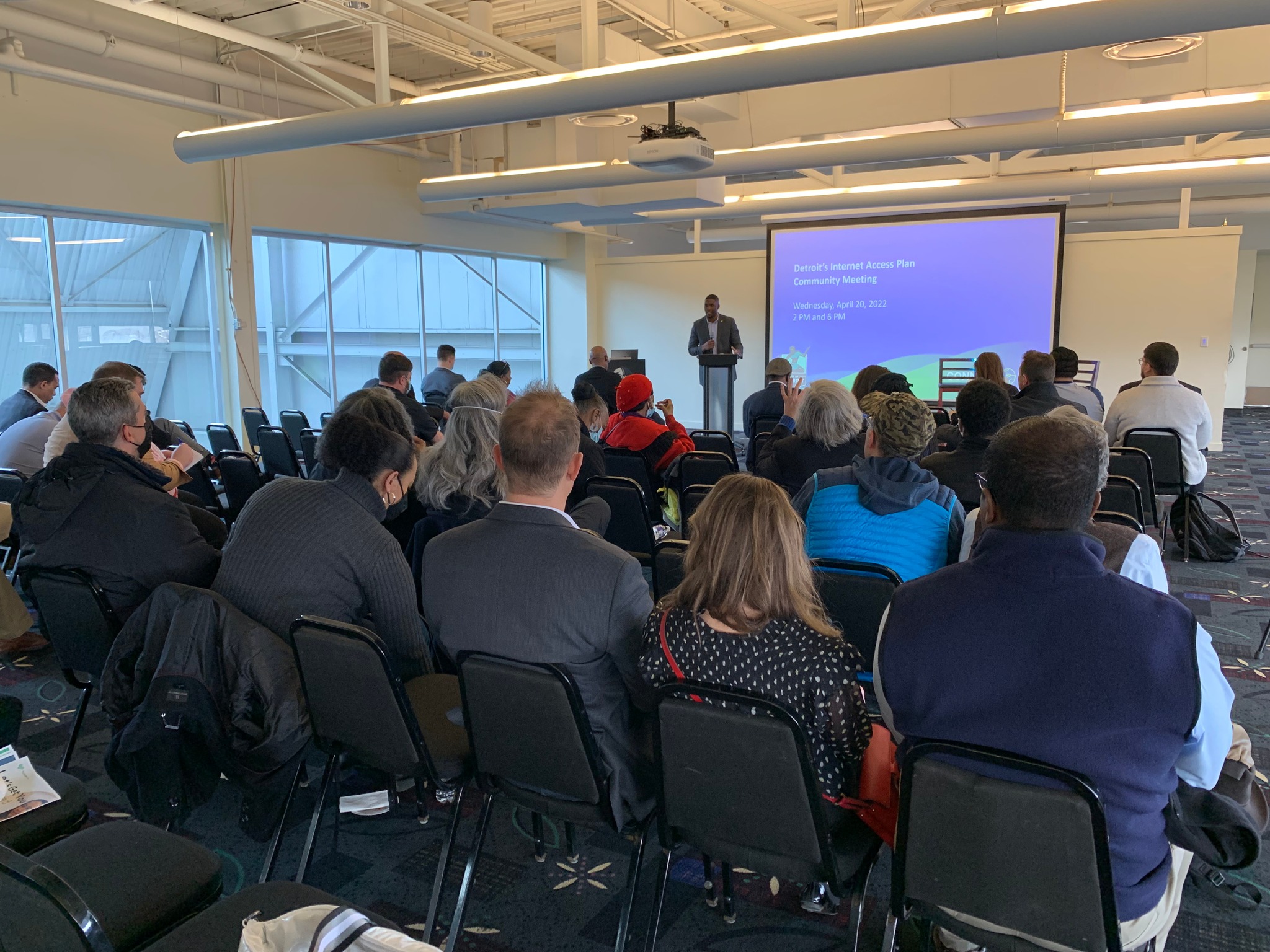Exclusive poll finds Detroiters want affordable broadband access and support a public high-speed internet network
A recent poll of Detroit residents supports the need for a strategic, city-led approach to bridging the digital divide. The survey of 600 Detroit adults, conducted in April and May 2022 by Washington, D.C.-based GQR, reveals 2 out of 3 Detroiters believe the digital divide in Detroit is a major problem, and 83% favor a public high-speed internet network where the city builds a fiber optic infrastructure. Multiple providers will have access to the same fiber infrastructure, fostering competition and lowering costs for customers.
The survey followed the April announcement of Detroit’s plan to bring high-speed internet access to Hope Village on the city’s west side, with a long-term goal of installing a fiber optic network across the city that would make high-speed internet service accessible to every home at a lower cost. Hope Village was selected for an initial $10 million pilot project because the area experienced a prolonged internet outage during the height of the pandemic.
“Detroit is joining more than 600 cities across the country that have already successfully established a municipal network of some kind,” said Joshua Edmonds, Detroit’s Director of Digital Inclusion. “Through a variety of existing funding sources, including the American Rescue Plan Act, we are committed to giving every Detroiter the opportunity to fully benefit from an expanding digital world. This survey demonstrates the need for digital access and desire from our residents who are eager to participate.”
Key Survey Findings Include:
· 20% of Detroit adults do not have a home internet connection, 1 in 4 of whom report that they cannot get broadband service installed at their residence.
· Cost is cited as the reason most don’t have a home internet connection (1 in 2).
· 63% of Detroiters without broadband say they would be likely to choose it if an affordable option were available.
· 1 in 5 parents reported a lack of reliable internet service during the pandemic, which forced their children to complete schoolwork on public Wi-Fi, a cellphone, or not at all.
· 77% of respondents believe the government has a responsibility to expand high speed internet access.
· 78% strongly agree that “expanding broadband access in low income or underserved areas is important to America’s economic future.” Further, 3 in 4 strongly agree this “will help create jobs and grow the economy in those areas.”
GQR conducted the survey on behalf of Connect 313, a community partnership formed as part of a citywide, data-driven digital inclusion strategy. With funding from the Rocket Community Fund, the Knight Foundation, and Connect for Humanities, the city commissioned a study for initial research, engineering, and network design.
“Bringing high-speed internet to every home and business in Detroit is how we continue our city’s renaissance and ensure our top place in the global market,” Edmonds said. “We must take advantage of this opportunity to keep our citizens fully and completely empowered in the 21st century.”
The complete 2022 Detroit Internet Use Survey can be found on Connect 313’s homepage at connect313.org or by clicking here.

